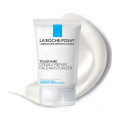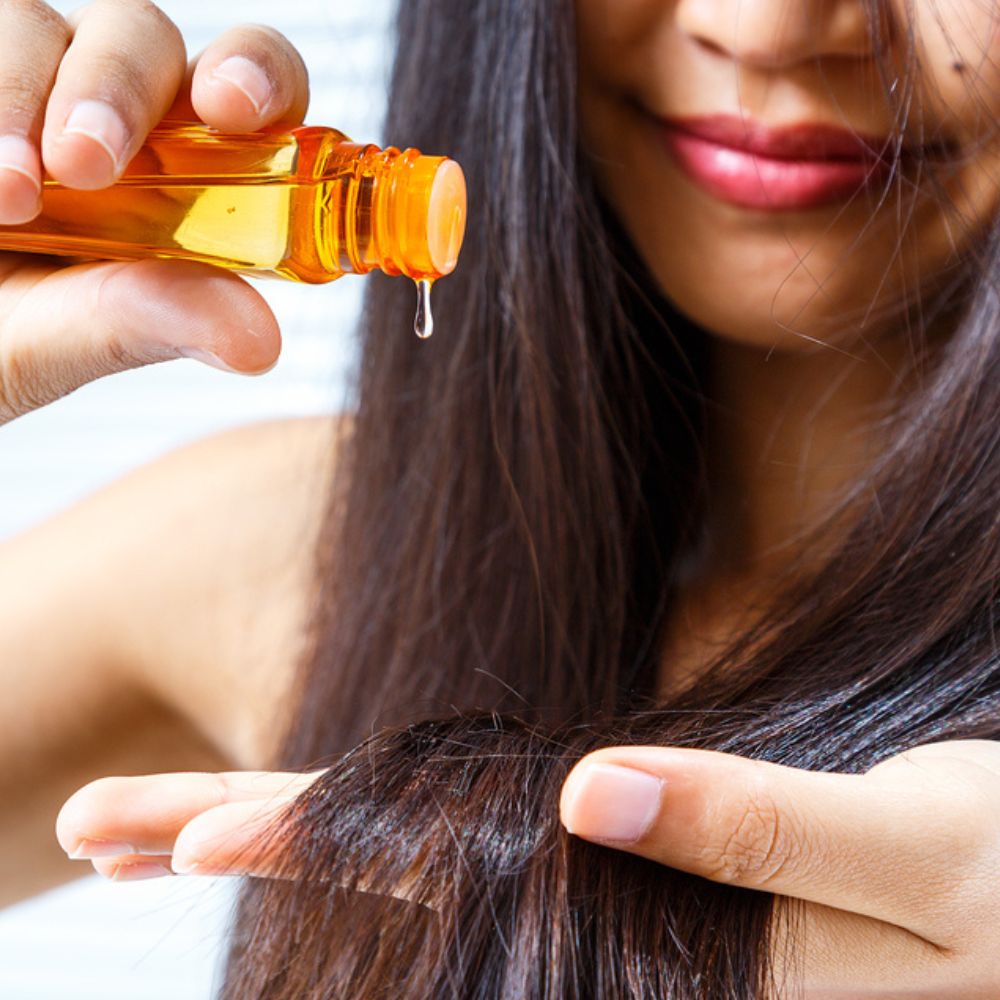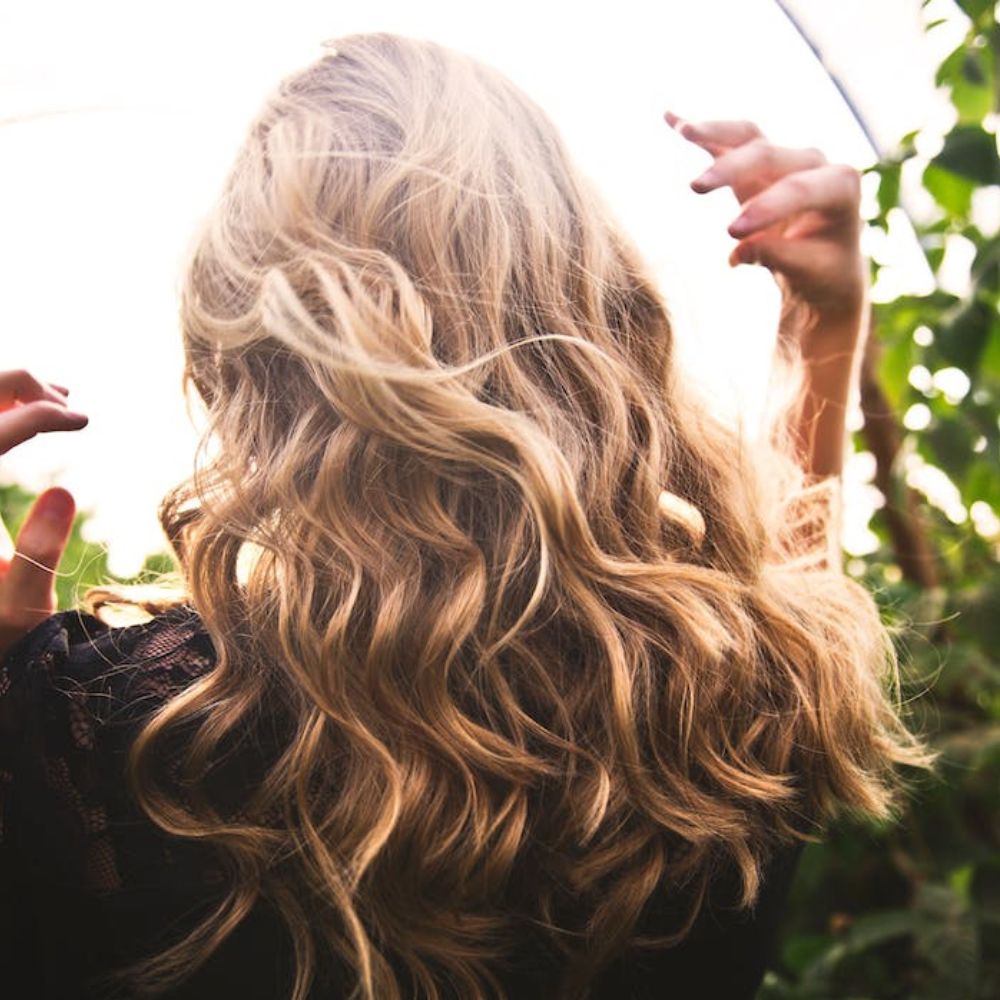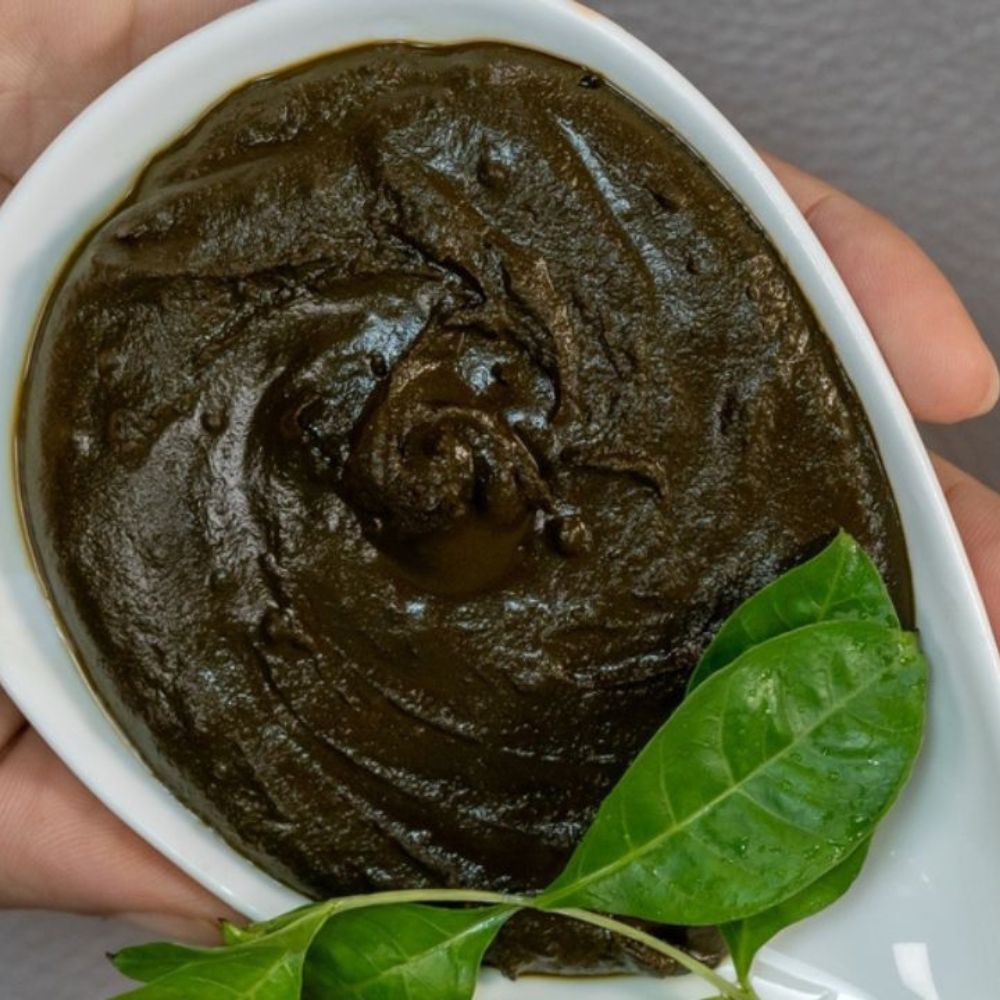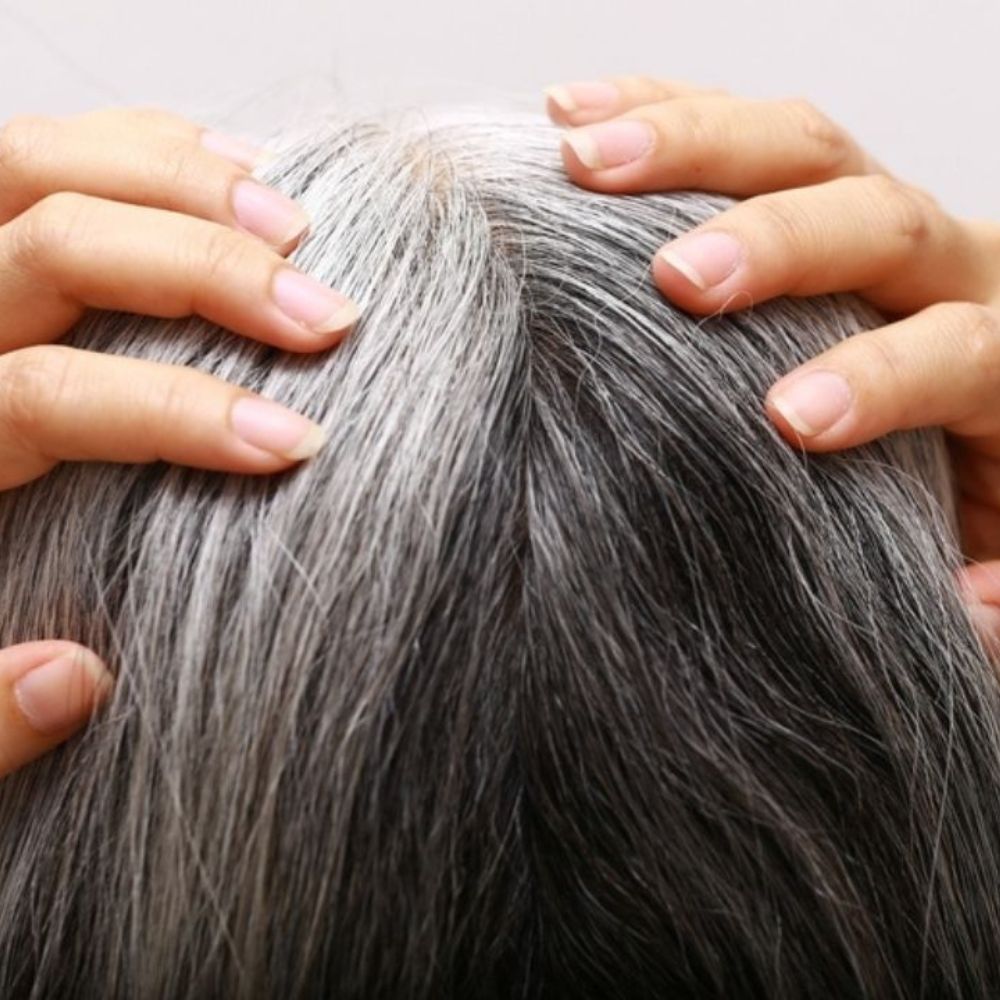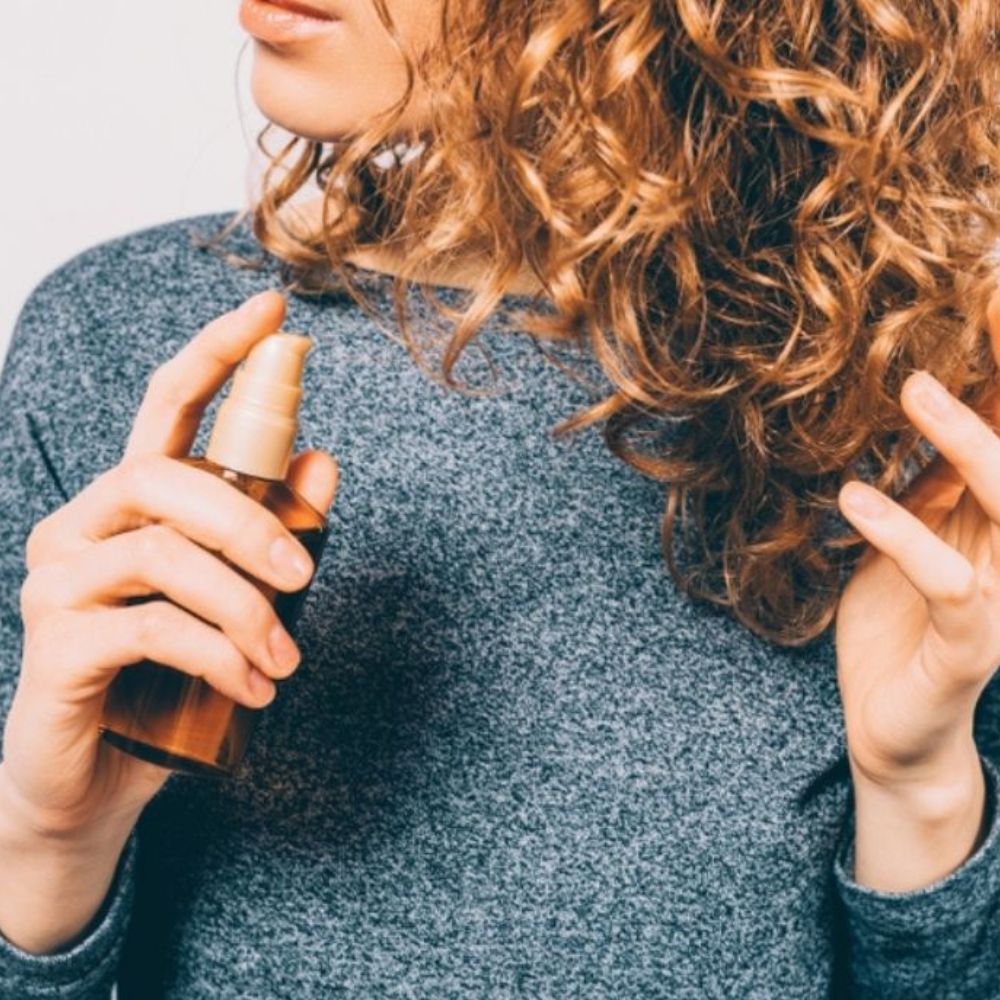Jojoba Oil for Hair: 7 Impressive Benefits And Ways to Use
Jojoba oil helps curb dandruff and boost hair growth. Here are some effective ways to use jojoba oil for hair and get gorgeous hair.
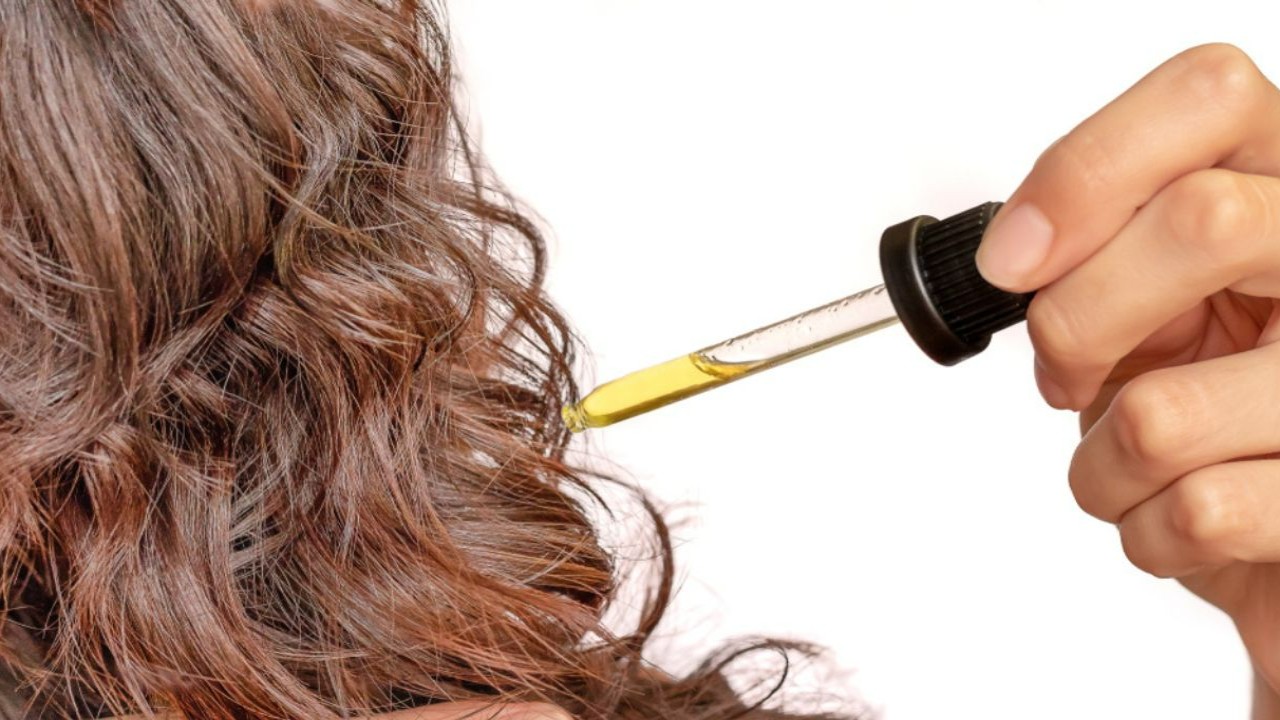
Jojoba oil for hair is regarded as a boon by many — all thanks to its nourishing properties that keep the tresses healthy, soft, and strong. It is a wax-like liquid substance that is derived from jojoba seeds from the tree Simmondsia Chinensis. It contains 98% pure waxes (wax esters, fatty acids, hydrocarbons, and alcohols), vitamins, and sterols.
The oil is popular in the cosmetic industry and is widely used in the formulations of hair oils, shampoos, conditioners, soaps, and so on (1). From treating thirsty, dry scalp to strengthening hair follicles, jojoba oil hair treatment can offer a myriad of benefits.
Learn everything about the jojoba benefits of hair in this article.
What Is Jojoba Oil?

Jojoba, also known as goat nut, wild hazel, and quinine nut, is a shrub that is native to the Southwestern United States of America. Jojoba plant is also grown in dry regions of Mexico. Jojoba oil is produced from its seeds and is widely used for medicinal and cosmetic purposes (1).
What Does Jojoba Oil Do for Your Hair?
Jojoba, when applied on the scalp, helps soothe and hydrate it. It has antibacterial and anti-inflammatory properties that help reduce dryness, itchiness, and irritation. It is packed with antioxidants that boost hair growth, helping you get luscious locks. All in all, this wonderful oil boosts hair health (1).
Top 7 Benefits of Jojoba Oil for Hair
Since jojoba oil is extensively used in skincare products, one might question its efficacy for haircare and wonder, ‘Is jojoba oil good for hair.’ The answer is yes! Being an emollient, it helps nourish the hair, which in turn prevents various hair concerns like dryness, frizzy hair, dandruff, brittle hair, and so on (2), (3).
Below, we have explained jojoba oil benefits for hair in detail, so read on!
1. Moisturizes the Scalp

It is imperative to keep the scalp moisturized to keep frizz, dryness, and flyaways at bay. Jojoba oil acts as a natural emollient to provide the utmost nourishment to the hair. It contains a broad spectrum of fatty acids that treat hair dryness and get rid of flakiness. It is the only plant that produces high amounts of liquid wax esters that add smoothness to the hair. These esters are naturally-obtained fatty acids that provide moisturization to the skin. Esters are also added to personal care products to increase the effectiveness of other ingredients. This is why jojoba oil is considered an excellent emollient that is suitable for all types of skin and hair (4).
2. May Help Boost Hair Growth
Jojoba oil is used by many people to strengthen hair strands and boost hair growth. Studies suggest that it may promote hair growth, leaving you with thicker hair (1). It is rich in vitamins B, C, and E and other nutrients like copper and zinc that make hair thicker and more voluminous (5). Massaging hair with jojoba oil once or twice a week can help you strengthen hair follicles and get beautiful locks.
3. Helps Tame Frizz
Many people with dry hair often find it challenging to detangle and manage unruly, frizzy hair. When hair is hydrated, it becomes easier to detangle and manage it. As mentioned above, jojoba oil hydrates the scalp, which in turn can make hair more manageable and help you experiment with different hairstyles.
4. May Promote Scalp Health
Jojoba oil exhibits strong antimicrobial and antioxidant properties that can help promote the overall health of the scalp. According to a study, the use of antioxidants on the scalp can strengthen skin barrier function and reduce hair thinning, making your hair appear thicker and fuller (6). Plus, the antimicrobial properties of jojoba oil can help improve the symptoms of dandruff and dermatitis, leading to a healthy scalp (7).
5. May Help Treat Scalp Acne
Jojoba oil, with a comedogenic rating of 2, acts as a non-comedogenic oil that can help treat and prevent the occurrence of acne and breakouts. Its properties as a liquid wax help dissolve built-up sebum due to its ability to penetrate the hair and remove the comedome. According to a study, it can be used alone or along with other anti-acne treatments to treat acne vulgaris (1).
6. May Help Treat Split Ends
Split ends can make your hair look dull and lifeless. Overexposure to chemical treatments and not taking good care of your scalp can lead to an imbalance of microbiome on your scalp, leading to inflammation, which in turn can cause split ends. According to a study, using plant oils with moisturizing properties can treat a host of hair concerns, including split ends, lice, dandruff, and hair loss (8).
According to our contributor, Dr. Nimrita Kaur, an Aesthetics doctor, “Although massaging hair with oils cannot be directly linked to the treatment of split ends, massaging hair with oils can provide deep conditioning that makes your hair more resistant to damage and hair fall.”
Talking about the benefits of using jojoba oil, our contributor Gwenda Harmon, who is a hair dresser & curly hair specialist, says, “Massaging hair and scalp with effective oils like jojoba oil, can help seal the hair cuticle, which helps repair and prevent split ends. Nourishing the scalp with oil can also help boost the health of the hair follicles and hair shaft, which helps accelerate growth.”
7. May Help Prevent Premature Graying of Hair

One of the major benefits of jojoba oil for hair is that it may help stop graying of hair. A recent study revealed that a lack of iron, copper, zinc, and calcium in the body plays a crucial role in making hair white/gray in young adults (9). Jojoba oil contains copper and zinc that can help reverse the process of premature graying of hair and keep your tresses vibrant.
How to Use Jojoba Oil for Hair Growth?
Jojoba oil, when used correctly, can help make your hair shiny and healthy. Below are some ways to use jojoba oil on hair:
Use It Directly
Take a few drops of jojoba oil, rub it on your palm, and massage your scalp and hair with it. You can also slightly heat the oil to soothe the scalp. You can leave the oil on your scalp for 1 hour or even overnight to ensure better absorption. Wash it using a mild, sulfate-free shampoo, and follow with a conditioner.
Mix with Other Products
You can mix jojoba oil with other carrier oils, like coconut oil, argan oil, or olive oil, and apply it to your scalp. Moreover, it can also be mixed with your regular or DIY hair conditioners and shampoos to offer hydration and nourishment to your hair.
“The best carrier oils to mix with jojoba are argan oil, apricot kernel oil, olive oil, and coconut oil. Also, you can combine jojoba oil with other essential oils to increase its potency,” says Dr. Nimrita.
Use It Like a Hair Mask
You can prepare different hair masks catering to different hair concerns and make your hair stronger.
Here are some amazing jojoba oil hair masks to try:
1. Jojoba Oil And Coconut Oil Mask

Ingredients:
1 tablespoon of jojoba oil
1 tablespoon of coconut oil
How to Prepare
Mix both oils in a bowl and apply on your hair from root to the tip. Keep these nourishing oils on your hair for an hour, and then rinse it off using a shampoo.
How Often to Use?
You can try this hair mask once a week to get the benefits of both coconut and jojoba oils.
Benefits
Coconut oil is laden with nutrients that help bring a natural shine and luster to the hair. It also reduces protein loss in the scalp and hence boosts hair growth, leading to thicker and more voluminous hair. It is used in various hair care products, as it hydrates the hair, treats damaged hair, and also treats lice effectively (10). When combined with jojoba oil, it can turn out to be a highly beneficial mask for treating dry hair problems.
2. Yogurt, Neem Powder, And Jojoba Oil for Dandruff
Ingredients:
2 tablespoons of jojoba oil
1 tablespoon of neem powder
1 teaspoon of yogurt
How to Prepare?
In a bowl, mix jojoba oil with yogurt. Add neem powder to it and mix well to form a paste of smooth consistency. Apply this using your hands or a hair brush. Wrap your head with a towel and leave it be for 30 to 40 minutes. Wash the pack off with cool water.
How Often to Use?
This hair pack can be applied once or twice every two weeks to curb dandruff and combat itchiness.
Benefits
One of the major causes of dandruff is fungal infections. Neem has excellent antifungal properties that help alleviate the symptoms of dandruff and itchiness (11). On the other hand, yogurt is rich in vitamins, calcium, and zinc that help keep the hair strong (12). Overall, this hair mask is one of the best ways to use jojoba oil for dandruff.
3. Jojoba Oil And Rosemary Essential Oil

Ingredients:
2 tablespoons of jojoba oil (adjust the quantity as per your hair length)
4 to 6 drops of rosemary essential oil
How to Prepare?
Mix jojoba oil with rosemary essential oil and massage the mixture onto your scalp. Keep it on your hair for half an hour, then wash it using a gentle shampoo.
How Often to Use?
You can treat your hair with this amazing hair mask once a week.
Benefits
Rosemary is a medicinal plant, the oil of which is used widely in haircare products to combat hair loss and promote hair growth (13). Rosemary, along with jojoba oil, can help strengthen the hair shaft and make your hair longer.
4. Jojoba, Olive, And Almond Oil
Ingredients:
- 2 tablespoons of jojoba oil
- 1 tablespoon of olive oil
- 2 tablespoons of almond oil
How to Prepare?
Take a bowl and mix all the oils in it. You can also warm the oils for better absorption. Use your fingertips to massage the oil mixture onto your scalp and hair. Don’t rub the oils on your hair vigorously — be gentle and keep it on your hair for 2 hours. You can also leave the hair mask on overnight. Rinse it off with cold water and a mild shampoo.
How Often to Use?
You can try this jojoba oil hair mask once or twice a week for desired results.
Benefits
Olive oil is an excellent source of antioxidants that offer a host of hair care benefits — it locks moisture into the hair, protects hair from UV damage, and reduces the symptoms of scaling and itchiness. Plus, its antifungal effects on the scalp help keep dandruff at bay. Almond oil, on the other hand, softens dry hair, boosts hair elasticity, and prevents hair damage induced by UV rays (14).
5. Jojoba Oil And Coffee Powder
Ingredients:
2 tablespoons of jojoba oil
1 tablespoon of coffee powder
How to Prepare?
Mix jojoba oil with coffee powder and apply thoroughly to your hair. Leave it be for 30 minutes, then wash the hair mask off using lukewarm water and mild shampoo.
How Often to Use?
This hair mask can be used one to two times a week to get strong and vibrant hair.
Benefits
Coffee helps stimulate hair follicles, improve barrier function, and accelerate hair growth (15). It can be used along with jojoba oil to prevent hair damage.
6. Jojoba Oil And Hibiscus Powder

Ingredients:
2 tablespoons of jojoba oil
1 tablespoon of hibiscus powder
How to Prepare?
Take jojoba oil and mix it with hibiscus powder. Stir well to make a smooth paste. Use a hair brush to apply the homemade hair pack, and keep it for an hour. Use a gentle, hydrating shampoo to wash it off.
How Often to Use?
This hair pack consisting of jojoba oil and hibiscus powder can be used once a week to strengthen hair.
Benefits
Hibiscus is rich in amino acids that make the hair shaft stronger, leading to hair growth (16). Plus, it also acts as a natural conditioner and smoothens hair.
7. Jojoba Oil And Aloe Vera Gel
Ingredients:
2 tablespoons of jojoba oil
1 tablespoon of aloe vera gel
How to Prepare?
Take aloe vera gel and mix it with jojoba oil. Stir properly to make sure there are no lumps. Apply it all over your hair, and wash it with cool water after an hour.
How Often to Use?
You can use this hair mask two to three times a week to moisturize and nourish your tresses.
Benefits
Aloe vera penetrates deep into the scalp to offer nutrition and hydration, thereby alleviating itching and inflammation. It also helps protect the hair from the adverse effects of harsh weather (17). Using jojoba oil and aloe vera for hair can help improve hair quality.
8. Jojoba, Peppermint, And Lavender Oil
Ingredients:
2 tablespoons of jojoba oil
4 drops of peppermint oil
4 drops of lavender oil
How to Prepare?
Mix jojoba oil with peppermint and lavender essential oils. Apply on your hair and wash it off after 30 minutes.
How Often to Use?
Using this homemade hair mask once a week can help you soften hair and restore balance to the scalp.
Benefits
Lavender oil not only smells great but also helps keep your hair healthy. It is a great remedy for lice — according to a study, topical application of lavender oil can help treat lice (18). Moreover, an animal study suggests that it can also speed up hair growth and prevent hair damage (19). Likewise, peppermint oil has proven efficacy in boosting hair growth without any adverse side effects (20).
9. Jojoba Oil And Onion Juice

Ingredients:
2 tablespoons of jojoba oil
2 teaspoons of freshly squeezed onion juice
How to Prepare?
Take a small-sized onion, peel it, and chop it into small pieces. Blend it to get fresh onion juice and mix it with jojoba oil. Massage this onto your hair and leave it on for 30 minutes. Wash it off with lukewarm water and mild shampoo.
How Often to Use?
You can use this hair mask once or twice a month for best results.
Benefits
Alopecia areata is an autoimmune disease that causes hair loss in patches (21). Onion juice can prove to be a beneficial remedy for treating this condition and preventing further hair loss (22). When mixed with the goodness of jojoba oil, it can work wonders in bringing life to dull and lifeless hair.
10. Jojoba Oil And Honey
Ingredients:
2 tablespoons of jojoba oil
1 teaspoon of honey
How to Prepare?
Mix jojoba oil with honey and apply on your hair, covering every inch of your hair. Wash this hydrating pack off after 30 minutes.
How Often to Use?
Using this mask once a week can help you hydrate dry hair and treat brittle hair.
Benefits
Regular use of honey can help treat dandruff, seborrheic dermatitis, scaling, itching, and hair loss (23). This hair pack, combined with jojoba oil and honey, can soften hair strands and improve the symptoms of inflammation.
Side Effects of Jojoba Oil for Hair
Although jojoba oil is safe for all hair types, it's important to do a patch test before incorporating it into your haircare routine to avoid any possible complications. There is a lack of studies on the potential side effects of jojoba oil. However, if you experience any itching, rashes, or discomfort after using jojoba oil, consult a doctor immediately.
Conclusion
Plant oils have gained a reputation for treating a plethora of hair problems. And why not? They are laden with nutrients and exhibit various properties that help strengthen hair. Jojoba oil for hair also solves various problems, including dandruff, itchiness, dehydrated scalp, inflammation, and so on. You can directly massage jojoba oil onto your scalp or mix it with haircare products to enjoy all its benefits. Indulging in hair care masks with jojoba oil, too, can help relieve you of itchy scalp and hair breakage, leaving you with healthier hair.
Contributor: Dr. Nimrita Kaur
ALSO READ: Best Tips on How to Use Hair Serum And Get Beautifully Tamed Hair





 JOIN OUR WHATSAPP CHANNEL
JOIN OUR WHATSAPP CHANNEL






































